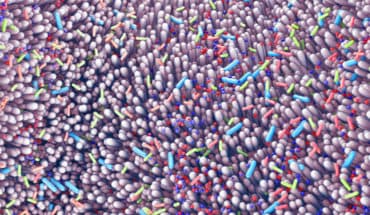Today, the Food Standards Agency (FSA) updated their guidance on cannabidiol (CBD) products which can be purchased without prescription. With one in ten British adults reporting that they consume CBD products available without prescription, such as oils, gummies or beverages, it is important to consider what these recommendations mean for the general public.
Consumer interest in CBD products has grown exponentially since the early 2010s, buoyed by growing experimental data on its effects on anxiety, mood, and inflammation. This evidence, however, is largely restricted to trials of pharmaceutical-grade CBD, which is only available on prescription in the UK. There has been little to no evidence on the effects of CBD when available in an oil as a wellness product or when contained within other food items.
In addition, whilst medical cannabis containing CBD must meet pharmaceutical guidelines to ensure it contains precise quantities of CBD, it became increasingly clear that over-the-counter CBD products failed to contain the advertised quantities of CBD. In addition, some products available on UK shelves had measurable levels of tetrahydrocannabinol (THC), which is a controlled substance.
To combat this, the FSA required all CBD products in the UK to meet certain requirements from 31st March 2021 to remain on the shelves. The guidance published today is an extension of the implementation of these regulations, aiming to provide consumers with advice over the recommended daily amount of CBD they should consume per day.
What is cannabidiol?
Cannabidiol, or CBD as it is more commonly known, is a compound found in high concentrations within the flowering part of the cannabis plant. It is one of the most abundant of a group of compounds known as cannabinoids. These compounds, including CBD, interact with our body’s own cannabinoid system. This system is found throughout the nervous system, the gut, and immune system.
Through interactions with the body’s cannabinoid system, CBD has been shown in laboratory-based models and clinical studies to have several effects on mental and physical health. It is through these studies which wellness companies make claims regarding the efficacy of CBD products, but as highlighted in the FSA’s report these studies are conducted using pharmaceutical-grade CBD, with evidence around over-the-counter products still lagging.
What are the recommendations?
The FSA’s recommendations are largely dependent upon the uncertainty surrounding non-prescription CBD products, considering the potential for direct harm and also through affecting the way important medications may be broken down by the body.
The previous recommendation provided by the FSA was a safe limit of 70mg CBD per day. This was based upon evidence that suggested that doses above this level for an average person could cause issues for individuals prescribed blood-thinning medications or those one immunosuppressants following organ transplants. Higher doses may also be more likely to cause side effects such as liver injury or increased sleepiness.
The FSA, as a regulator of food products and supplements rightly takes the approach to ensure that safe acceptable limits are set at a level at which no harm may come to consumers. The new recommendations, taking light of this, now suggest that the maximum safe dose for CBD is 10mg per day. This represents a minimal risk approach applied to the wellness sector to mitigate against any side-effects which may be seen when higher doses are prescribed under medical supervision. It is also a dose which does not have significant evidence to treat any medical ailments and therefore is more appropriate in the wellness sector.
The reason for such a significant change is due to continued evidence gaps around the effects of CBD when incorporated within food, manufactured to a non-pharmaceutical standard, or when consumed for a long period of time. As such the FSA reduced the typical dose seen in previous studies and reduced this by 300-fold to arrive at the new recommendation.
Where does this leave consumers?
Moving forward, this new recommendation is unlikely to change how ubiquitous CBD products have become. However, some steps may be taken in the future to curb CBD products with serving sizes greater than 10mg. For instance a beverage which contains more than 10mg of CBD would contain more than a daily dose which raises some obvious practical implications. More restrictions are likely anticipated when the FSA provides guidance on products which contain other cannabinoids, alongside CBD.
It is important to draw distinctions between the purchase of CBD as a wellness product or within food and CBD which is available on prescription. At present, pharmaceutical-grade medical cannabis, including preparations which contain CBD, are available on prescription for eligible patients through regulated clinics, such as Sapphire Medical Clinics. The FSA’s recommendations don’t extend to medical cannabis as these are ensured as being pharmaceutical-grade by the Medicines and Healthcare products Regulatory Agency (MHRA). In addition, medical cannabis prescriptions are overseen by consultant specialist doctors, allowing for appropriate measures to be taken to oversee and/or limit adverse effects of interactions with other medications.
What is clear from this guidance is the importance of medical oversight when using CBD or indeed any other product for health reasons.
Authors:
Dr Mikael H Sodergren MBChB(Hons), DIC, PhD, FRCS
Head of Medical Cannabis Research Group, Imperial College London
Chief Medical Officer, Curaleaf International, UK
Dr Simon Erridge MBBS, BSc
Postgraduate Research Student, Medical Cannabis Research Group, Imperial College London
Head of Research and Access, Sapphire Medical Clinics, London, UK
- Christmas Is for All - 19th December 2025
- Intense influenza season driven by new strain - 19th December 2025
- KFSHRC Develops Novel Technique to Treat Inner Ear Disorders - 19th December 2025







